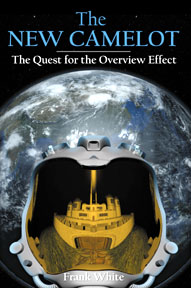

“Trump is a dangerous threat to the foundations of our Democratic Republic that have for 240 years guaranteed all Americans freedoms of speech, thought, religion, commerce, and the press,” I wrote in an e‑mail to loved ones in the summer of 2016. My concerns about Trump’s fitness for the presidency never had anything to do with politics, partisanship, or ideology. We were well versed in private character, but completely unaware of the need for public character.

We were fearful, combative, and antagonistic members of the body politic, rather than stakeholders interested in and able to contribute to the greater good. We were ever more vulnerable to manipulation by those who told us that existential threats lurked around every corner. The more insular we became, the more incapable we were of discerning the complexities of the world outside our church bubble. A vague emptiness washed over me as we drove endless loops through the suburbs.

There was no connection to the past, and little attempt to draw from the wisdom of tradition accumulated by previous generations. Our church culture had been created from scratch, out of nothing, just like the suburban landscape. She was expected to stay home, and she did heroic work taking care of us all, even as she was marginalized. Mom had her sixth child, and eventually a seventh. Everything in our lives revolved around our church congregation, with the exception of our sports teams. Throughout the 80’s, we were ensconced in the suburbs, going to a small school run by our church, which helped the leaders police nonconforming thought and behavior. Ward’s experience and reflections will resonate with many readers who grew up in the evangelical movement, as well as all those who have an interest in the health of the church and its impact on American life and politics.

He shares his search for a faith that embodies the values he was taught as a child. He recounts his growing alarm and grief over the last several years as evangelical conservatives attacked truth, rejected personal character, and embraced authoritarianism and conspiracism. Ward sheds light on the evangelical movement’s troubling political and cultural dimensions, tracing the ways in which the Jesus People movement was seduced by materialism and other factors to become politically captive rather than prophetic.Ī respected journalist, Ward asks uncomfortable but necessary questions, calling those inside and outside conservative Christian circles to embrace truth, complexity, and nuance. In Testimony, Ward tells the engaging story of his upbringing in, and eventual break from, an influential evangelical church.


 0 kommentar(er)
0 kommentar(er)
